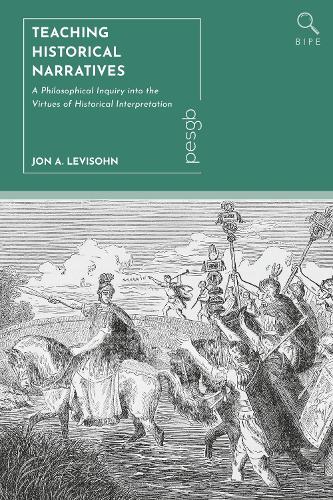
Teaching Historical Narratives: A Philosophical Inquiry into the Virtues of Historical Interpretation
(Hardback)
Publishing Details
Teaching Historical Narratives: A Philosophical Inquiry into the Virtues of Historical Interpretation
By (Author) Jon A. Levisohn
Bloomsbury Publishing PLC
Bloomsbury Academic
26th December 2024
United Kingdom
Classifications
Professional and Scholarly
Non Fiction
Teaching of a specific subject
Educational: History
907.1
Physical Properties
Hardback
240
Width 164mm, Height 238mm, Spine 20mm
520g
Description
With this book Jon Levisohn argues that current history education is set up in a way that sees students of history at one end of a continuum with the academic experts in the field of history at the other, and where the goal of history education is to help students to think like historians. Building on a critical engagement with Carl Hempel, Hayden White, and David Carr, as well as contemporary work in virtue epistemology, Levisohn proposes a new theory of historiography which serves as a set of guidelines for the teaching and learning of history. According to the theory, the work of historiography is best characterized as a negotiation among narratives, weaving together received narratives with new information and ideas in order to construct a new narrative. This negotiation happens with a particular orientation towards negative evidence or flexible disconfirmationism, and is assessed according to the openness, sensitivity, responsibility, creativity, boldness and humility, i.e. the virtues of historical interpretation. The book rethinks the work of history education, offering new ways of thinking about the goals of the teaching of history, namely, in terms of the cultivation of the interpretive virtues.
Author Bio
Jon A. Levisohn is the Jack, Joseph and Morton Mandel Associate Professor of Jewish Educational Thought at Brandeis University, USA, where he also directs the Jack, Joseph and Morton Mandel Center for Studies in Jewish Education and chairs the Department of Near Eastern and Judaic Studies.
